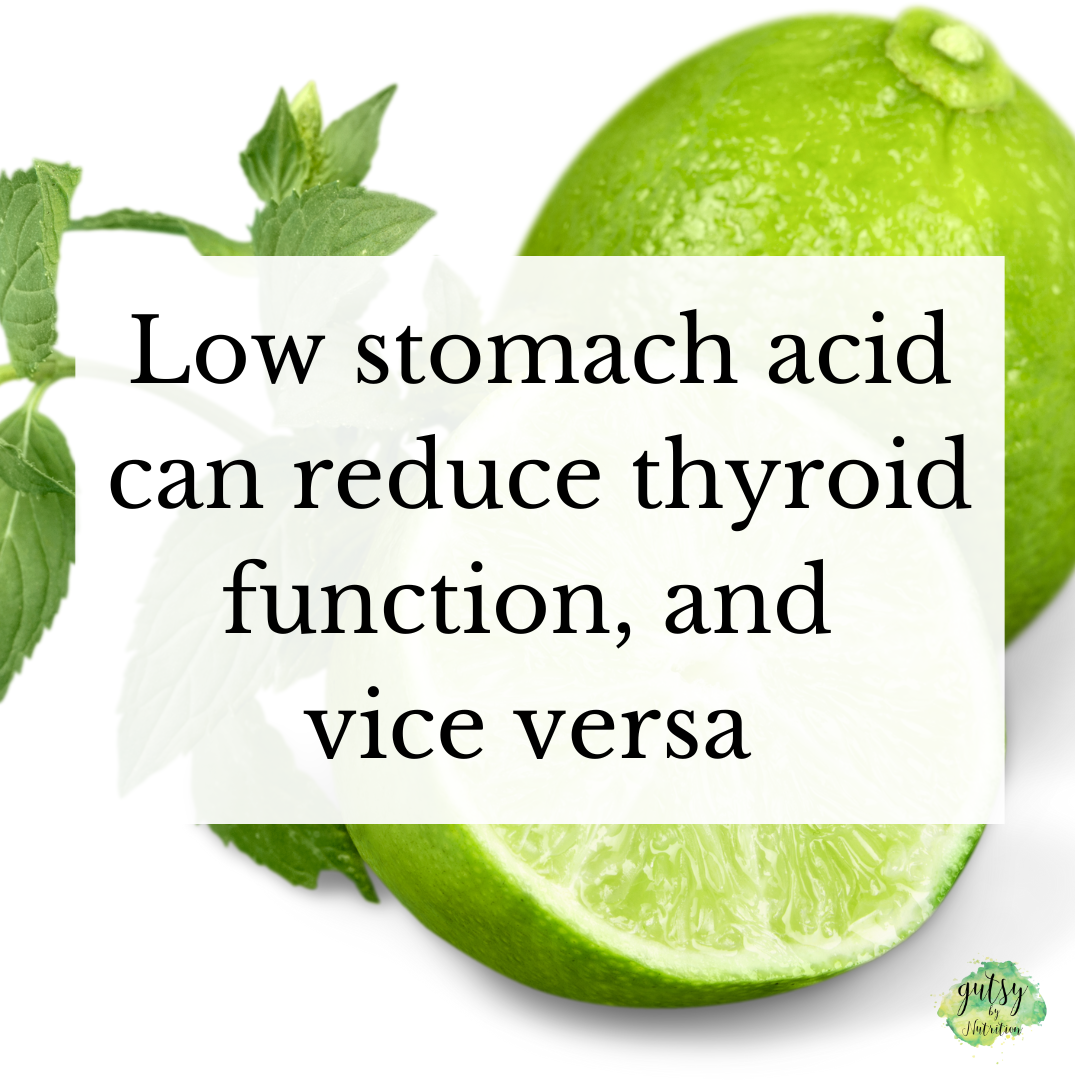Low stomach acid can reduce thyroid function
Low stomach acid and thyroid disease - particularly hypothyroidism or a slow thyroid - are closely linked through nutrient levels, gut health and metabolic (energy) function.
There's a feedback loop, with low stomach acid reducing thyroid hormones, which reduces stomach acid and so on
Nutrient absorption
Adequate stomach acid is essential for breaking down and absorbing vitamin B12 needed for energy, mood and nerve function. Hypothyroidism can in turn reduce stomach acid production, leading to low B12 levels
Low stomach acid (hypochlorhydria) affects the absorption of non-heme (plant--based) iron, which is already poorly absorbed. This can contribute to iron deficient anaemia. Iron is a key nutrient for thyroid hormone conversion
The absorption of zinc and magnesium, also key for thyroid hormone production and metabolism, is also reduced with low stomach acid
Gut health
Low stomach acid increases susceptibility to gut infections, small intestinal bacterial overgrowth or SIBO and fungal infections as it helps sterilise the gut and maintain a healthy microbiome
Infections and overgrowths can lead to gut inflammation, impairing nutrient absorption and intestinal permeability, potentially triggering or exacerbating autoimmune thyroid disease ie Hashimoto’s thyroiditis
Thyroid hormnones
Thyroid hormones, especially converted T3, stimulate the production of gastric acid. In hypothyroidism, low hormones reduce stomach acid production, creating a vicious cycle where poor thyroid function leads to lower stomach acid, further reducing the body’s ability to absorb nutrients critical for thyroid function
Metabolism
Hypothyroidism slows our metabolic rate, which can impact the production of digestive juices, including stomach acid. This can lead to symptoms like bloating, constipation and slow digestion, further impacting gut health and nutrient absorption
Our body is interconnected, one part depending on the other

